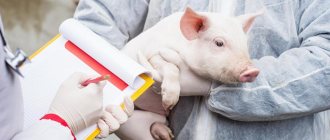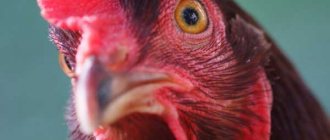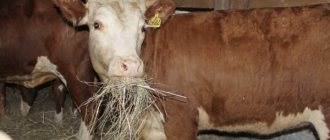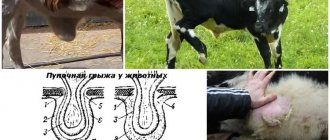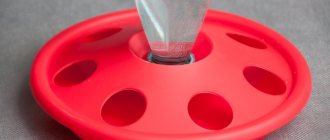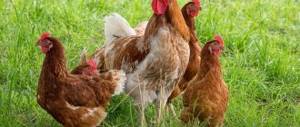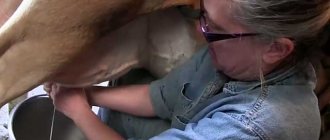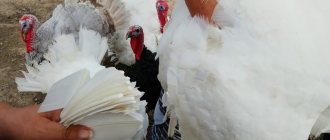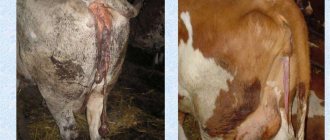0
18266
Article rating
It happens that broilers fall on their feet. This can happen for many reasons. Mainly due to incorrect content.
Description of the problem90×68.jpg 90w» sizes=»(max-width: 600px) 100vw, 600px» /> Broilers fall on their feet
Adults
the value of the chicken coop. This environment is favorable for the development of bacteria to which immunity has not yet been developed.
If chickens fall on their feet at the age of 10-15 days, they are given emergency assistance - 3 drops of vodka are dripped into their beaks. This temporary measure can be used until the veterinarian arrives.
Most often, the reason why broilers fall on their feet is a lack of Calcium and vitamins, then appropriate treatment is prescribed, which consists of replenishing
Possible diseases
We recommend reading our other articles
- Tomato variety Red Krasno F1
- Why tomatoes grow poorly and what to do
- Cherry variety Ovstuzhenka
- How to properly grill vegetables
Under the wrong conditions of keeping, feeding, in case of epidemics, or when purchasing infected individuals, a wide variety of diseases that are dangerous for chickens can appear in the chicken coop. Some of these diseases can cause leg failure or severe pain in the legs, causing chickens to sit on their legs.
- Marek's disease is an infectious disease that affects the eyes and nervous system of birds. This is the reason why broilers fall on their feet. Depending on the age of the bird, its contents, and the form of its course, the disease can manifest itself in different ways. Symptoms: decreased or loss of vision, loss of appetite, exhaustion, disorientation, weak legs, constriction of the pupil.
- Pullorosis is an infectious disease that affects young individuals. The cause of the bacteria is poor living conditions. Symptoms: thirst, exhaustion, diarrhea, beak breathing, weak legs, closed eyes.
- Newcastle disease is viral. Infection occurs through close contact between birds or the use of common drinking bowls and feeders. The disease develops within 7-12 days, but the weakest birds may die on the first day after infection. Symptoms: loss of coordination, paralysis of the neck and limbs, fever, depression, loss of appetite, diarrhea, vision problems, mucus from the nose, beak, cough, hawking. If the disease is chronic, it will manifest itself in limited mobility, decreased appetite, exhaustion, convulsions, and overexcitation.
Some diseases can cause leg failure or severe pain in the limbs, causing chickens to sit on their feet
Important!
Newcastle disease is dangerous for any birds, so sick individuals need to be isolated not only from chickens, but also from ducks, geese, quail and any other birds.
- Coccidiosis is a bacterial disease that primarily affects young broilers. Symptoms: disorientation, diarrhea, depression, decreased appetite, desire for constant warmth. The disease is determined in laboratory conditions.
- Aspergillosis is a fungal disease that affects the respiratory system of young animals. It manifests itself in slow development, difficulty breathing, hoarseness, lethargy, and decreased appetite. In the acute form of the disease, mortality reaches 80-100%, so it is very difficult to cure the disease.
- Rickets most often affects young birds with a lack of vitamin D. This problem is often observed in chickens that are kept in enclosed spaces where sunlight does not reach. The disease provokes weakening of the legs, ruffled feathers, loss of coordination, loss of strength, decreased appetite, softening of the bones and beak. If the disease is not treated, the birds will quickly weaken and die.
- Arthritis most often affects older birds. Birds sit on their legs, fall, and limp with this disease. The reason is that inflammation occurs in the joints and soft tissues next to them. If the disease is not treated in time, the bird will no longer get back on its feet and may even die.
Important!
An early sign of arthritis is the inability to perch. So if the bird doesn’t even try to fly up to its perch and stays away, then you need to urgently call a veterinarian!
Adults
Do not confuse natural posture with signs of disease. If broilers sit on their feet, lower their heads and sleep, this indicates that they are comfortable sleeping.
But if the chicken quickly fell to its feet when getting up, or falls to its side and cannot get up on its own, this is a sign of illness.
There is more than one reason why broilers fall on their feet. It happens due to improper maintenance and feeding. A bird is sick if:
- They are crowded (more than 10 chickens per m²).
- If the daylight hours indoors last less than 17 hours.
- At low temperature. The wings puff up for a long time, they huddle together or get restless.
- A lack of vitamin D leads to weak joints,
Treatment and prevention measures
Rickets cannot be cured at home. This disease has understandable causes, which are easier to avoid than to overcome. You should not give medicine without a doctor's prescription.
For arthritis, it is necessary to give ampicillin at a dose of 15-20 mg/kg of live weight. Young month-old animals can be treated with tricalcium phosphate or D3 capsules, and fish oil is sometimes recommended. Phosphate dosage is 2% of the daily feed weight. The course lasts a month.
If broilers sometimes fall when trying to get up, then for preventive purposes the following recommendations must be followed:
- Give 1 drop of vodka.
- Install an additional light source or start walking.
- Add vitamin D or eggshells to your food.
- Treat for parasites or infections.
A properly formulated diet from the first days of life ensures good immunity:
- At the age of up to a week, vitamins, crushed shells are added, vegetables and herbs are introduced. Crushed nettle is suitable, first a dose of one tenth of the feed, then up to 50%. Add chalk and eggshells.
- Month-old chickens are transferred to feed with additives or high-quality compound feed with the addition of vegetables, herbs, and vitamins.
- Adult animals need plenty of food and water. In the off-season, be sure to provide mineral supplements and consult a veterinarian.
Also, preventive measures include vaccination, which can be carried out at home if you invite a specialist.
Broiler chickens often fall on their feet due to a disease such as coccidiosis. If falls and convulsions begin to appear, there are different stages:
- paratyphoid;
- plague;
- psittacosis;
- prostagonymosis.
The latter disease is parasitic in nature, like coccidiosis. Entire livestocks die from advanced forms, so the symptoms cannot be ignored. If the fall is caused by overfeeding, because birds have limits for optimal weight gain, the diet must be reconsidered. An overgrown animal produces low-quality fatty meat.
[dzs_videogallery]
Why do broilers' legs fail and how to treat them?
Most often, the disease is entirely the fault of the owner, who did not provide the chickens with the necessary feeding conditions or the correct microclimate in the poultry house.
Most often, the disease is entirely the fault of the owner
The main reasons for a bird to fall on its feet:
- Violation of content technology. An excessive number of birds in the chicken coop leads to disruption of the physical activity of individuals and increases the amount of harmful substances released by chicken droppings. The problem is solved by maintaining the density of broilers.
- Lack of vitamins. Improper feeding causes vitamin deficiencies, most of which are accompanied by problems with the bird’s gait and falling on its feet in severe cases.
- Mineral deficiency in the body . Unbalanced feed leads to the development of conditions when the bird’s body experiences a deficiency of minerals. As a result, the normal condition of the bones and joints is disrupted, and they can no longer cope with stress.
- Rickets. Vitamin D deficiency, which occurs due to lack of sun and poor nutrition, leads to impaired bone formation in chickens, which subsequently affects the entire development process of the livestock.
- Infectious diseases. Most diseases manifest themselves by falling on their feet. An accurate diagnosis is made taking into account the entire complex of symptoms of the pathology.
If the conditions for keeping broilers are correct, then the cause of lameness is injury or infection.
Rapid weight gain in broilers causes severe stress on the bones
In both cases, the problem is treated using veterinary drugs.
Lack of important vitamins
Vitamin deficiencies are the main cause of problems in chickens.
More often observed in winter. If vitamin D deficiency develops, the exchange of calcium and phosphorus in the body is disrupted. As a result, weakness of the bone apparatus develops.
The main cause of the problem is crowded housing and lack of sunlight in the house.
Vitamin B1 deficiency occurs more often before the age of one month. When walking, the bird falls forward. Next, paralysis of the paws and convulsive conditions develop. Other vitamin deficiencies are less common.
Be sure to read:
Chicken fleas: how to get rid of parasites using folk remedies and chemistry?
They have the following manifestations:
- B2 deficiency – unsteadiness when moving, difficulty getting up;
- lack of vitamin B12 – difficulty getting up, drooping wings, lethargy;
- Vitamin E deficiency – unsteadiness of gait, frequent falls, twisted paws, lethargy;
- lack of A - ulceration of the legs, developmental delays, eye damage, causing blindness.
A balanced, nutritious diet allows you to completely prevent the problem of vitamin deficiency.
Proper menu planning is necessary for broilers of all ages.
Poor nutrition
The cause of vitamin deficiency - poor nutrition - also causes gout. In case of pathology in an adult or chicken, the process of uric acid metabolism is disrupted.
The cause of vitamin deficiency - poor diet - also causes gout
As a result, it actively accumulates in muscles and joints. The phenomenon leads to the broiler losing its legs. Initially, the pain causes limping, then the pathology progresses, as a result of which the bird loses control of its legs.
Treatment of gout is possible only at the beginning of the development of the disease by improving the quality of life of the livestock and correcting dietary errors. Broilers are slaughtered at 45 days of age and gout is not usually treated.
Infectious diseases of broiler chickens
The broiler's immunity is extremely weak.
Cleanliness of the cage, proper nutrition of chickens, and normal stocking density significantly reduce the likelihood of developing diseases. Many infectious pathologies are manifested by unsteadiness of gait, then a further fall on the feet.
Early slaughter of one and a half month old chickens makes vaccination pointless. Frequent infectious lesions of meat hybrids are the norm.
They are affected by the following pathologies, which include the symptom of falling on their paws:
- Salmonellosis - characterized by deformation of the paws, discharge from the eyes, swelling of the cloaca. The chicken begins to diarrhea and experiences excessive thirst.
- Colibacillosis is manifested by diarrhea, high fever, and then the inability to stand on your paws.
- Aspergillosis - at first the chickens begin to wheeze and cough. Without treatment, the disease progresses. Broilers fall on their feet, become weak, and then usually die.
Be sure to read:
Why do chickens go bald on their back, neck, head: causes, symptoms and treatment?
To prevent the occurrence of viral infections, it is recommended to wash your hands before contacting livestock and wear special clothing used only in the poultry house.
Incorrect content: nasal paws, rheumatism, tightness
If kept too closely, an adult will experience problems with its paws. Because of the crowded conditions, the birds stop moving normally and injure each other’s legs or both by stepping on them.
As a result, inflammatory processes develop, joints suffer and broilers fall on their feet.
Spending a long time in a dirty, damp cage causes rheumatism in individuals of any age. Dampness is harmful to joints. Rheumatism leads to leg failure.
Incorrect flooring of the poultry house is the cause of swollen paws. As a result of this phenomenon, the bird, experiencing pain, ceases to stand normally on its legs and falls when walking. Movements become impaired, the chicken tends to move its legs faster, which causes it to fall forward.
Bird injuries
Injuries occur when the chicken coop is kept too close or has improper floors. Soft tissues are damaged, serious damage to bones and joints occurs.
Injuries occur due to excessively cramped housing or improper flooring in the chicken coop.
It is recommended to send broiler chickens of satisfactory weight to slaughter.
Arthritis
Inflammatory lesions of the joints of the paws appear when there is high humidity in the poultry house.
Treatment of broilers is not carried out due to early slaughter, when the disease is in the initial stage, and movement is still normal.
The joints of a sick individual begin to swell, become swollen, red, and painful when touched.
Marek's disease
There is a sharp decrease in weight, a fall on the paws, and the formation of tumors on the skin. The disease is incurable, the chickens die. In meat hybrids, the disease can develop at the age before slaughter. Sick birds are slaughtered and then disposed of.
